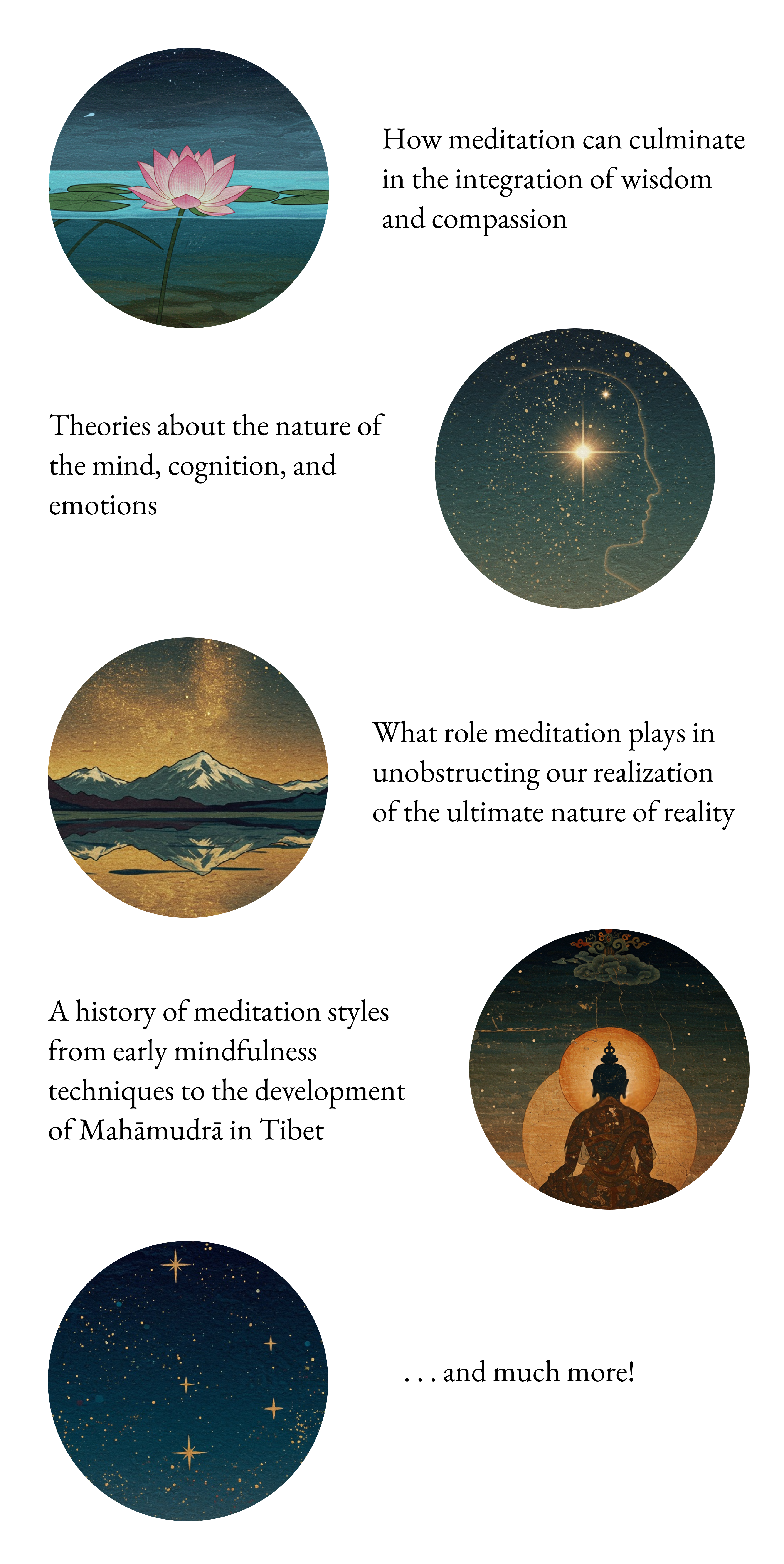
THE WISDOM ACADEMY PRESENTS
Varieties of Buddhist Meditation
An Online Course with John Dunne
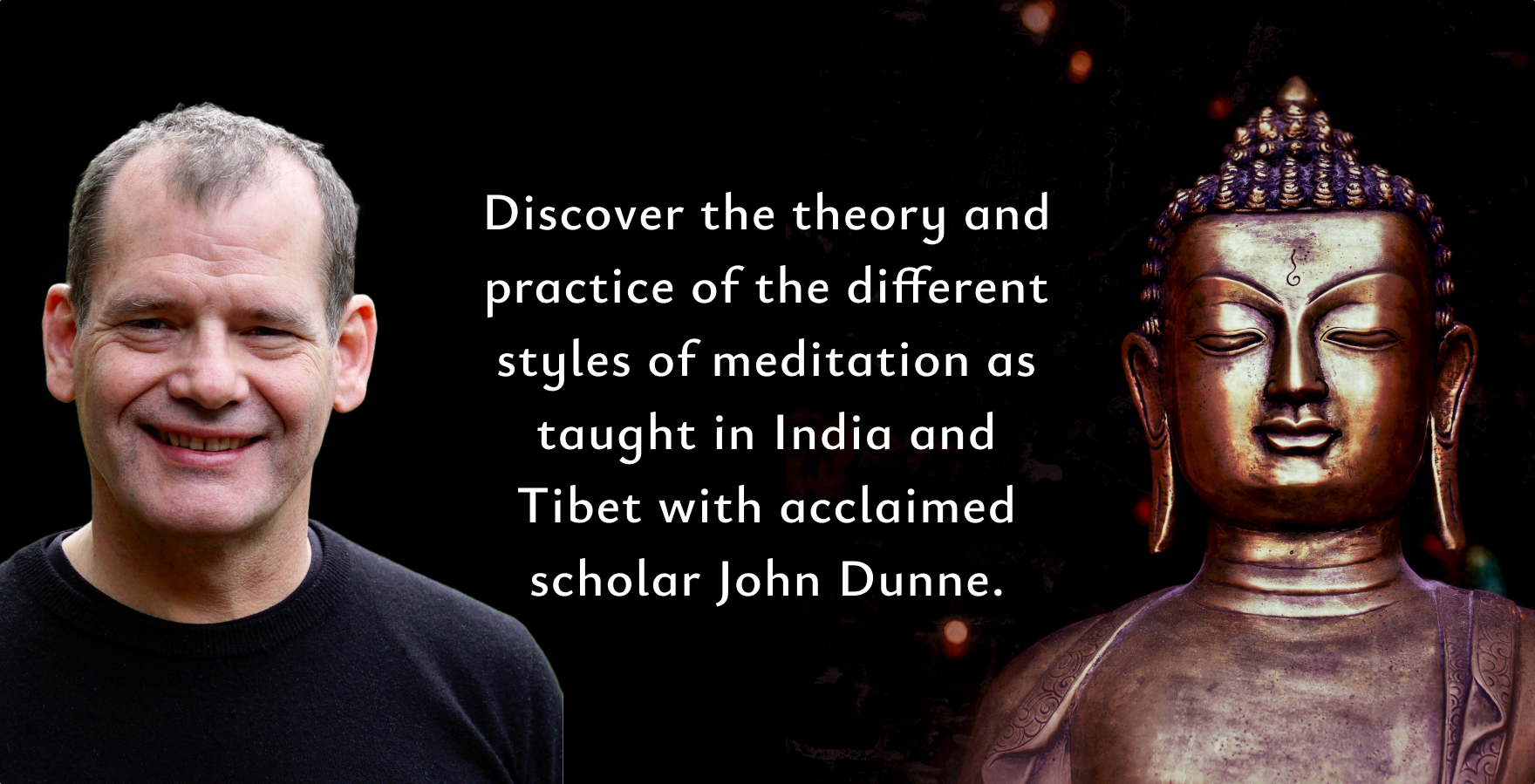
Contemplative practice plays a central role in all Buddhist traditions. This course offers an accessible exploration of the varieties of Buddhist meditation, focusing on core practices and their underlying theories.
We begin by exploring the styles of practice prominent in early Buddhism, and then examine the new versions of practice, including tantric approaches, that arose with the Mahāyāna, or “Great Vehicle,” in India.
We then turn to the contemplative styles that these Indian approaches inspire in the traditions of Tibet, such as the nondual practice of Mahāmudrā.
Enroll today for a profound and enriching exploration of the heart of the Dharma across cultures and history.
Tuition: $247 USD
After enrolling, check your email for a welcome email with instructions on how to take the course. When you enroll in any Wisdom Academy course, you agree to our terms of use. Enrolled students have lifetime access to course materials. Wisdom is a 501(c)(3) nonprofit. Your tuition supports the creation of more courses like this one. Thank you! For more about our terms, please see the Wisdom Academy FAQ.

Your Course Includes
11 hours of video teachings
2.5 hours of guided meditations
Fascinating curated readings
Lifetime access
Throughout the course, we will seek to understand the underlying ideas and terminology that explain and inform Buddhist practices.
We’ll explore how meditation styles can be contradictory—effortful or free of effort, discerning or nonjudgmental. Along the way, we will also see how contemporary scientific research on contemplation can help us to understand some aspects of Buddhist meditation.
With the aid of acclaimed scholar John Dunne, you’ll come away with a clearer understanding and appreciation—both theoretically and experientially—of the variety of Buddhist practices.
Tuition: $247 USD
• How much does it cost? Tuition is $247 USD. For this fee, you get lifetime access to materials and you help support Wisdom’s nonprofit mission. Thank you!
• When does the course run? This course is available in self-study mode, so you can enroll at any time and take it at your own pace.
• Are there any live components? No, besides the ongoing forum discussions.
• Will I lose access? No, you will retain access even after the last lesson has been released, so you can return to the teachings whenever you like!

Lesson 1: An Introduction to Buddhist Contemplative Practice
In our first lesson, John Dunne introduces us to what we mean by “contemplative practice” in the Buddhist tradition, sharing key features of any meditation practice. He also outlines the goals for our course and details what motivation means in the Buddhist context—underscoring the meaning of dukkha, or suffering, and its role in our understanding of the four noble truths.
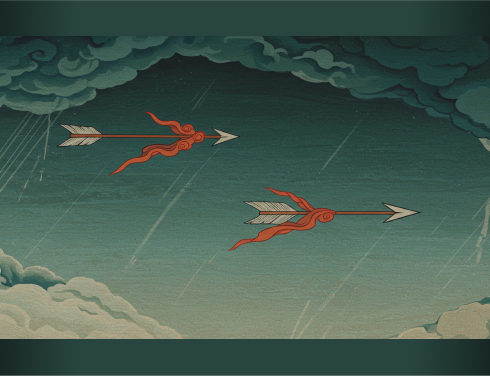
Lesson 2: Suffering and Its Antidotes
John Dunne illuminates further the meaning of suffering as being mistaken about our core identity, and then underscores how contemplative practices can serve as antidotes to this fundamental misunderstanding. In this discussion we learn about the five skandhas, or aggregates, that constitute the mind-body system, explore the meaning of karma, and identify an important triad of contemplative practice: understanding, experience, and realization.

Lesson 3: Understanding Śamatha and Vipaśyanā and the Five Omnipresent Mental Factors
We begin this lesson with a discussion on how to understand “path” in the Mahayana tradition, before being introduced to the three trainings in ethics, concentration, and wisdom. John Dunne then explores the distinction between śamatha and vipaśyanā styles of contemplative practice and illuminates what happens with the five omnipresent mental factors —as described in Asaṅga’s Abhidharma system—during practice.

Lesson 4: Stabilizing the Mind
In this lesson, we explore in depth the theory and practice of stabilizing the mind through object-oriented meditation, or śamatha. We learn the features of śamatha and its main problems—agitation and laxity—as well how traditional textual instructions on the practice and the oral transmission of how to practice sometimes differ.

Lesson 5: Emptiness in the Second and Third Turning of the Wheel of Dharma
John Dunne introduces us to the philosophy of the second turning of the wheel of Dharma through Nāgārjuna’s teachings on emptiness. Underscoring the context of the development of Buddhism around the time of the common era, we learn about Nāgārjuna’s views on the emptiness of phenomena before turning to key features of the Yogācāra school of the third turning, and what these teachings on emptiness mean for our understanding of the mind.

Lesson 6: The Emptiness of the Mind
In this lesson, we continue our discussion of emptiness but in the context of understanding the nature of the mind. John Dunne focuses his explanation on the philosophy of Dharmakīrti and the Yogācāra school and explains what we mean by saying consciousness is “luminous” and free of subject-object duality.

Lesson 7: Nondual Awareness
In this lesson, John Dunne discusses nondual styles of meditation, including some key features and how we might understand nondual awareness itself. We learn what happens on and off the cushion in nondual and classical styles and why devotion is an important aspect to nondual practices like Mahāmudrā.

Lesson 8: Emptiness and Appearances
John Dunne further explores how emptiness is understood in nondual meditative traditions, especially how it relates to appearances. We learn how philosophies from Indian masters Kamalaśīla, Śantarakśita, and Maitripa influenced Mahāmudrā in Tibet, and what the various avenues are—both philosophical and physiological—for realizing the nondual mind.

Lesson 9: Tantra Mahāmudrā, Sūtra Mahāmudrā, and Context for Practice
In this lesson, John Dunne explores the various pathways to Mahāmudrā, through both philosophical and physiological methods. We also learn context necessary for the practice, including the importance of preliminaries.
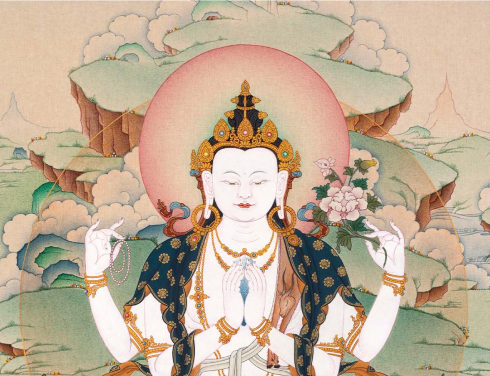
Lesson 10: Cultivating Compassion
In our final lesson, John Dunne reflects on the importance of cultivating compassion as well as wisdom. We learn how vital bodhicitta is for a Mahayana practitioner and the practices of equalizing and exchanging oneself and other that lead to its development, as well as modern theories that support an understanding of our innate capacity for connecting with others—and what this implies for Buddhist practice.
1. If you want to receive a thorough grounding in the varieties of Buddhist meditation, taught by an exceptionally clear and deeply experienced teacher.
2. If you already have a practice, but want to find out more about other traditions and practices.
3. If you’re new to Buddhism and not sure which tradition you want to explore first.
Tuition: $247 USD
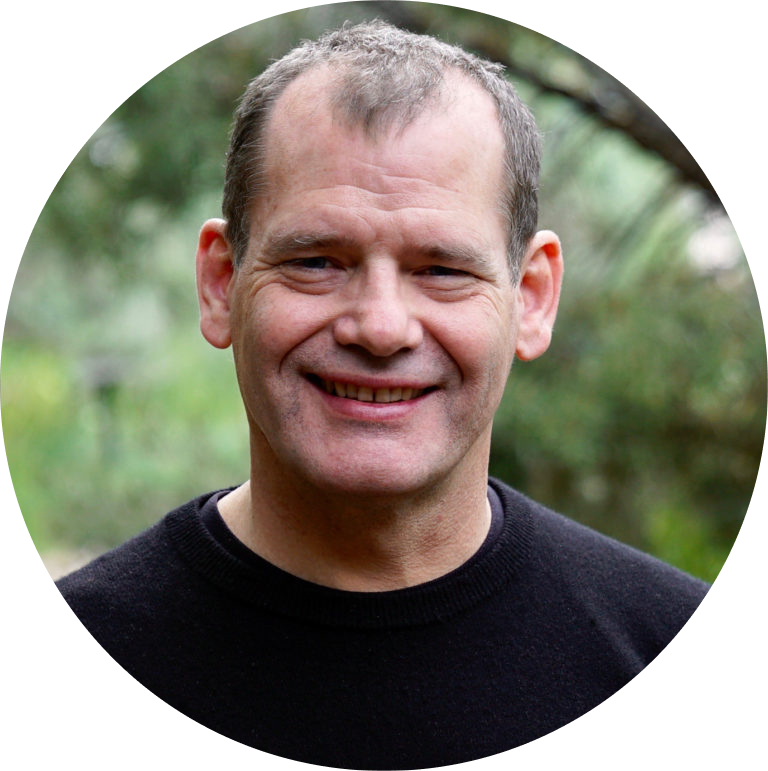
John D. Dunne serves on the faculty of the University of Wisconsin-Madison, where he holds the Distinguished Chair in Contemplative Humanities at the Center for Healthy Minds. He is also chair of the Department of Asian Languages & Cultures. His work focuses on Buddhist philosophy and contemplative practice, especially in dialog with Cognitive Science and Psychology. His more than fifty publications appear in venues ranging across both the Humanities and the Sciences, including Foundations of Dharmakīrti’s Philosophy (2004) and Science and Philosophy in the Indian Buddhist Classics: The Mind (2020). John Dunne speaks in both academic and public contexts, and he occasionally teaches for Buddhist communities. His broader engagements include being a Fellow of the Mind and Life Institute, where he was previously a member of the board of directors, and serving as an academic advisor to the Rangjung Yeshe Institute in Kathmandu, Nepal.
The Wisdom Academy is the leading provider of high-quality online courses about Buddhism and meditation.
The Wisdom Academy was founded in 2016. Since then, we’ve grown to be the leader in online Buddhist learning, with over 50 courses and thousands of students enrolled.
In the Academy, dedicated students come together with beloved teachers to learn authentic philosophy and practices for awakening.
Our courses offer teachings on Dzogchen, shamatha, mahamudra, vipassana, mindfulness, jhana, and much more. The clear, progressive structure of the courses will support you in learning about the profound philosophy and practices of the Dharma. You’ll discover the vivid and immediate ways that the teachings can create more ease, joy, and freedom in your daily life. Click here to learn more and explore our course catalog.





